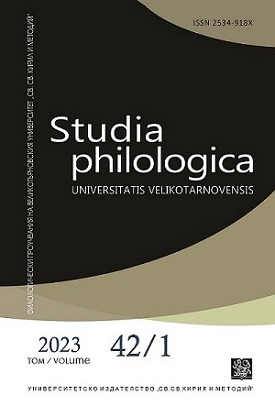Джендър паузата в немския език
The Gender Gap in German
Author(s): Denitsa DimitrovaSubject(s): Social Sciences, Language and Literature Studies, Gender Studies, Theoretical Linguistics, Sociology, Phonetics / Phonology, Morphology
Published by: Великотърновски университет „Св. св. Кирил и Методий”
Keywords: political correctness; gender-neutral language; phonetic and graphic markers for gender in the language; German; Genderstern
Summary/Abstract: The strive for a politically correct or gender-neutral language requires some changes in the norms for expressing gender in languages. In German the feminist language reform activists since the 1970‘s on forcefully reject the use of the generic masculinum (the generalized use of the masculine form of a noun for professions or actions as an all-encompassing form for all genders) in public communication and demand for the explicit graphic marking of the feminine gender in the written language of the state‘s administrative and legal language. For the short forms of the pairs of agent nouns in masculine (“Lehrer” ‘teacher’) and feminine (“Lehrerin” ‘female teacher’) a different orthography is suggested, i.e. writing of the suffix-initial “i” as a capital I (Binnen-I ‘word-medial I’), for it to differ from the feminine form. Since in 2018 the Federal Constitutional Court in Germany recognised the legal existence of the category „undefined gender“ in the Civil Status Act, its graphic inclusion in the forms for the agent nouns occurs though the use of a combination of a slash and a hyphen, an underscore or an asterisk (“Lehrer/-in”, “Lehrer_in”, “Lehrer*in”, “LehrerIn”). The asterisk (*, Genderstern) is one of the more frequently chosen variants. The corresponding means explicite marking of gender-inclusive language in oral speech is the use a glottal plosive [ʔ] (the so called gender gap) as a separator between the masculine stem and the feminine suffix. It is a question of time to see if these trends in the orthography and the pronunciation of the shortened gender-inclusive agent nouns will turn out sustainable enough to become the norm.
Journal: Studia Philologica Universitatis Velikotarnovensis
- Issue Year: 42/2023
- Issue No: 1
- Page Range: 38-49
- Page Count: 12
- Language: English, Bulgarian, German

